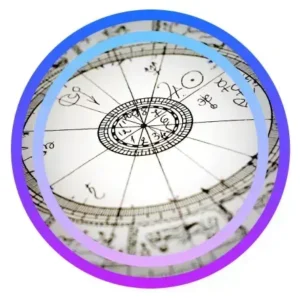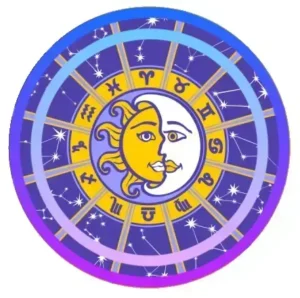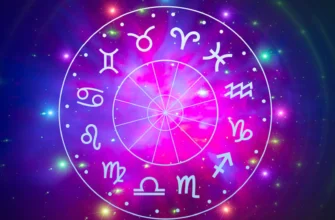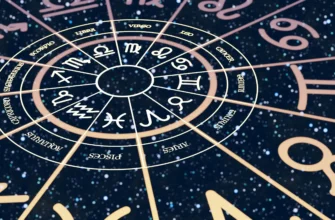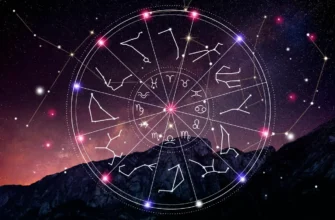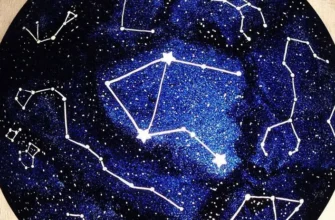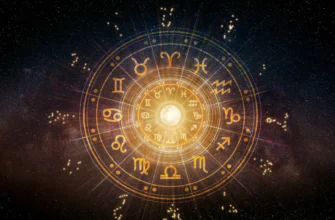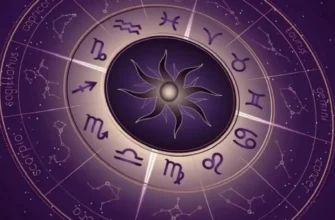The Moon is the emotional heartbeat of synastry. When one partner’s Moon interacts with another’s planets, it reveals how safe, nurtured, and understood both people feel in the relationship. In synastry chart meaning, Moon aspects show emotional bonding, attachment patterns, and the instinctive reactions that shape intimacy. Through relationship synastry, Moon contacts indicate whether two people naturally soothe each other or unintentionally trigger unresolved emotional wounds. This is why Moon synastry often determines the long-term success of birth chart compatibility—because emotional comfort is the foundation of every stable relationship.
Moon aspects also reveal domestic compatibility: how two people share space, routines, and everyday life. In synastry chart interpretation, harmonious Moon aspects support emotional trust and vulnerability, while challenging ones highlight mood differences, sensitivity issues, or mismatched needs for closeness. By understanding the Moon’s role, couples gain insight into how to create a nurturing emotional environment—one that supports both partners’ inner worlds and helps them feel at home in the relationship.
In synastry, the Moon represents emotional needs, inner comfort, and the type of domestic environment that feels natural. Its placement in a natal chart reveals the moods, tones, and vibrations that an individual is constantly attuned to, influencing the kind of family or home life they seek. A Moon in an independent sign, such as Aries, Aquarius, Sagittarius, or Gemini, indicates a need for freedom and autonomy in the domestic sphere. Individuals with these placements are less likely to thrive under a restrictive home environment or with a partner who imposes limits on their independence.
For men, the Moon often reflects the type of female partner with whom they feel most emotionally at ease. More broadly, the Moon governs what brings comfort and security, both emotionally and within the home. It shapes instinctive responses to intimacy, nurturing, and personal space.
Consider a man with his Moon in Capricorn. Having retired early, he has cultivated a sense of stability and self-discipline aligned with Capricorn qualities. His daily routines are moderate, and he maintains a sober, healthy lifestyle. This placement fosters a comfort with maturity and responsibility, enabling him to embody Capricorn traits naturally. However, the ease of expressing these lunar qualities also depends on the Moon’s aspects within the natal chart, which can either support or challenge the individual’s ability to integrate these tendencies into everyday life.
Moon in Synastry: Urges, Needs, and Expression
Astrological principles suggest that the placement of planets in signs reflects fundamental urges and needs – what an individual must express and what is essential for their emotional fulfillment. For example, anyone with the Moon in Capricorn shares certain archetypal needs, including a desire for structure, security, and responsibility within their personal and domestic life.
Individuals with a Capricorn Moon often find comfort in routines that support these needs. Even in retirement or periods of reduced professional activity, they may cultivate productive and satisfying ways to remain engaged, such as hobbies or projects that provide tangible results. The Moon’s aspects in the natal chart are crucial, as they reveal how easily and in what ways a person expresses these emotional impulses and fulfills their underlying needs.
A Capricorn Moon often gravitates toward stable, conservative, and secure family structures. This placement emphasizes long-term planning, practical care for loved ones, and a preference for order and consistency in the home. Similar patterns of security orientation can be observed in the Moon in Cancer and the Moon in Scorpio, although each expresses these tendencies through the lens of its respective sign.
Common perceptions associate the Moon in Capricorn with maturity beyond one’s years and a reserved demeanor. While this is often accurate, other chart factors – such as multiple planets in youthful, mutable signs like Gemini – can moderate these tendencies. In such cases, Capricornian qualities remain present but may manifest less obviously, blending with other expressions of personality and energy.
Aspects in a natal chart reveal the intricate plot of an individual’s life, showing how impulses and emotional needs are expressed and met. For instance, a Moon in Capricorn – or in any sign – forms a more Saturnian influence when it makes challenging aspects to Saturn, such as conjunctions, squares, or oppositions. In such cases, the Moon carries additional Capricornian or Saturnian qualities, emphasizing the need for inner security, stability, and approval, as well as a heightened sensitivity to structure, authority, and worldly standards.
Individuals with the Moon in close, challenging aspects to Saturn tend to approach relationships with seriousness and caution. This influence often manifests in a profound sense of responsibility toward partners, marriage, and family. Men with a Capricorn Moon, or with significant Moon-Saturn aspects, may be especially sensitive and conscientious regarding their spouses and family dynamics. Similarly, when both the Sun and Moon are influenced by Saturn, there can be a pronounced tendency toward emotional caution, over-sensitivity, and a propensity to take events personally, particularly under pressures related to security and responsibility.
The Moon governs the need for nurturing and emotional comfort. Each placement offers a unique form of emotional satisfaction. A Moon in Sagittarius, for example, may feel nurtured through experiences of adventure and exploration, such as spontaneous travel or outdoor activities. In contrast, a Moon in Cancer, Scorpio, or Pisces requires more intimate, emotionally resonant forms of care, such as thoughtful gestures, physical comfort, or quiet emotional support. Regardless of placement, the Moon consistently reflects fundamental needs for security, care, and emotional nourishment.
Regressive Cycles and Lunar Responses in Children
Astrological cycles often resemble a life-long rhythm of growth, plateau, and occasional regression. During periods of intense personal or planetary change, individuals may feel compelled to return to familiar patterns or seek security. These regressions provide a stabilizing influence when external forces – particularly the outer planets Uranus, Neptune, or Pluto – create periods of uncertainty, transformation, or profound emotional upheaval. Such periods can leave individuals feeling suspended or disoriented, prompting a natural desire to seek grounding and emotional nourishment through familiar routines or supportive relationships.
In children, the Moon plays a central role in expressing needs for security, emotional stability, and care. When outer planets form stress aspects to a child’s natal Moon, regressive behaviors may emerge as a coping mechanism. For example, transiting Pluto can trigger intense psychological or emotional responses, bringing old patterns to the surface for processing and transformation. In practical terms, a child may show increased dependency, clinginess, or minor behavioral regressions, such as accidents, tantrums, or attachment to objects that provide comfort and reassurance.
Health and physiological responses are also closely tied to lunar activity. Stressful transits of Saturn, Mars, Pluto, Neptune, or Uranus to a child’s Moon can manifest as minor illnesses or physical symptoms. Mars transits may provoke fevers, while Pluto can coincide with eruptions or skin conditions. Such manifestations are often symbolic expressions of the underlying emotional or psychological adjustments that the child is experiencing.
A vivid example involves a young child whose Moon is aspected by transiting Pluto, resulting in regressive behaviors such as increased dependence on a caregiver, minor accidents, and heightened emotional sensitivity. Objects that provide security, such as a favorite toy or personal item, may become emotionally significant, symbolizing stability amid the transformative influence of Pluto. These experiences reflect the broader principle that regressions are natural and constructive components of personal development, particularly during periods of intense planetary activity.
The Moon Sign and Its Role in Personal Expression and Nurturance
In astrology, the Moon sign holds a fundamental role in shaping personal comfort, modes of self-expression, and emotional well-being, yet it is often underemphasized compared to the Sun sign. While the Sun represents overarching identity and vitality, the Moon governs the ways in which individuals feel at home in themselves and how they seek emotional security. The Moon indicates what feels natural in daily life, what provides a sense of “this is me” and “this is how I’m supposed to live.”
Challenging aspects to the Moon, such as squares or oppositions, highlight areas where adjustments are necessary for emotional expression and fulfillment. These aspects are not inherently negative; rather, they indicate points in life where conscious effort is required to harmonize inner needs with external circumstances. For instance, a Moon in Capricorn forming challenging aspects to Saturn may indicate a person whose need for security and emotional stability is intensified, requiring careful navigation of responsibility, authority, and personal boundaries. In such cases, individuals may overemphasize the traits of their Moon sign to achieve a sense of balance and control over their emotional environment.
The Moon also governs nurturing and the ways in which one experiences care and support from others. In men, in particular, the Moon often reflects the type of nurturing they seek from a female partner, corresponding to comfort and domestic ease. For example, a Moon in Sagittarius may feel emotionally nourished through adventure, exploration, or shared experiences, whereas a Moon in Cancer, Scorpio, or Pisces may require more intimate, emotionally responsive gestures such as personal attention, physical touch, or verbal reassurance.
Furthermore, the Moon sign interacts closely with the outer planets and transits to reveal cycles of emotional growth, regression, and transformation. Periods dominated by Uranus, Neptune, or Pluto can provoke uncertainty or destabilization, prompting a temporary regression to familiar patterns or nurturing sources. For instance, a child experiencing a challenging Pluto transit to their Moon may display regressive behaviors as they seek security, illustrating how planetary dynamics influence emotional responses in practical life.
Overall, the Moon sign is a crucial determinant of emotional orientation and domestic comfort. It reveals which environments, interactions, and relationships are emotionally satisfying, and how individuals instinctively seek care and support. Understanding the Moon’s position and aspects in a natal chart provides profound insight into patterns of emotional behavior, attachment, and compatibility in relationships, highlighting why the Moon remains central to both personal astrology and synastry studies.
Neptune and the Moon in Synastry
Aspects between Neptune and the Moon reveal a profound interplay between emotional sensitivity and idealism in relationships. Neptune’s influence introduces a psychic and imaginative quality, often lending a rich romantic streak to the individual’s emotional life. This combination may manifest as artistic talent, a highly intuitive nature, or a deep yearning for spiritual or emotional connection. However, it can also generate a sense of ambiguity, especially in men’s charts, concerning relationships with key women in their lives, including mothers or partners.
During periods when transiting Neptune forms conjunctions, squares, or oppositions with the Moon, individuals may experience a temporary sense of emotional uncertainty. For example, a man whose Moon is aspected by transiting Neptune may encounter a phase lasting approximately eighteen months in which his perceptions of his partner or marriage become idealized or confusing. The projection of expectations onto the partner can lead to feelings of disconnection or the urge to escape, creating a dynamic that challenges realism in relational interactions.
Neptune’s transits, whether by conjunction, square, or opposition, are not inherently negative; rather, they are catalysts for spiritual growth and self-awareness. Individuals may seek escape through unhealthy avenues such as substances or indulgent behaviors, but equally, these transits can inspire meditation, artistic creation, or humanitarian efforts, reflecting Neptune’s capacity to elevate consciousness beyond the mundane.
When Neptune aspects multiple planets that already form complex configurations, such as a T-square involving Mercury and the Moon, the resulting energy intensifies the Neptune vibration. In practical terms, this can create a persistent sense of longing or dissatisfaction, sometimes difficult to define, but invariably focused on the areas of life represented by the aspected planets and houses. This “Neptune dissatisfaction” underscores the importance of integration and conscious awareness in navigating relational and emotional patterns.
In synastry, a Moon-Neptune aspect often manifests in partner selection and relational dynamics. Men with Neptune influencing the Moon may be drawn to partners who are intuitive, dreamy, or spiritually attuned, sometimes favoring qualities aligned with Pisces or other sensitive, imaginative signs. Conversely, other chart factors can modify these tendencies; for instance, a Moon in Taurus typically seeks security, stability, and domestic comfort. However, when influenced by Uranus, Neptune, or other outer planets, the individual may instead be attracted to unconventional or lively partners, exhibiting a preference for activity and novelty over the steadiness traditionally associated with Taurus.
Ultimately, Neptune-Moon aspects highlight the tension between emotional ideals and reality, emphasizing both the challenges and transformative potential inherent in deep relational connections. Understanding these dynamics provides critical insight into compatibility, attraction, and emotional fulfillment within any natal or comparative chart analysis.


